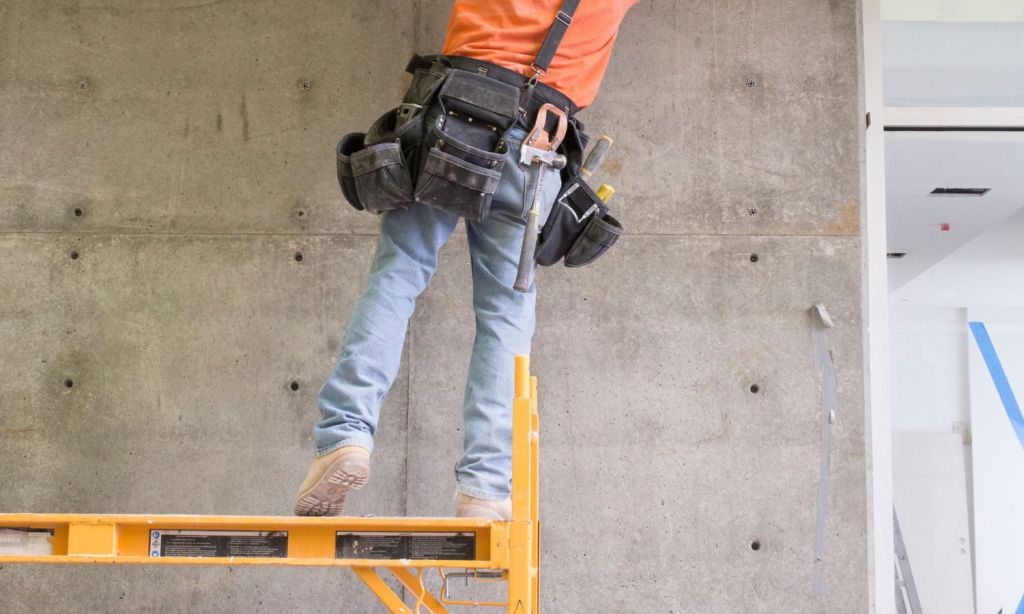In Australia, almost one in two young people who start apprenticeships will not complete them. This is due to the long working days, unsupportive colleagues, and the need to constantly prove yourself, which can be detrimental to mental health. Thomas was nearly one of them. Here’s his story and what he thinks we need to do to ensure more completions.
I knew further schooling wasn’t for me and I was keen to get a head start in the manufacturing industry as a fitter and turner. Growing up in rural Queensland meant job opportunities were limited so at age 15, I moved out of home to complete an apprenticeship in Wollongong, NSW.
The experience wasn’t at all what I expected. I didn’t get much support from other tradies and felt singled out a lot. As the apprentice, you get all the rubbish jobs – which is to be expected as the new kid on the block – but I was also treated poorly, and everyone around just laughed it off. I’d moved away from most of my mates and family so not having that support close to home was difficult.
I started putting on weight and I just wasn’t happy with where I was. I noticed that I would eat more to feel comfort. I was not happy, not talking to my friends often. I sheltered up a bit and stopped reaching out to mates. I was quieter and wasn’t going out of my way to engage in conversation.
Luckily my brother lived in Wollongong, and he was good at checking in, but I was mindful of dumping everything on him. When you’re in that position of, like, in a tough spot mentally, you don’t want to reach out to others yourself. And when you’re living 2,000km away from them, it can be hard to talk about feelings. When you’re going through a hardship, the last thing you feel like doing is reaching out and asking for help.
Eventually, my mates started the conversation with me and I’m so lucky they did. It felt confronting to start it myself but them asking the question just gave me the chance to talk. I realised it’s not weak to talk about feelings. Don’t hide from them. The people in who showed support just asked what was wrong and then truly listened. They didn’t offer too much advice – just talking through it helped.
After I received support from my friends and family, I definitely felt happier. I felt more energetic to seize the day, take all the opportunities that came at me in life and just be more productive in general and happy while doing so.
I took up boxing and fell in love with it. It started recreationally, like three days a week, just once a day training. My relationship with my coach is very important to me. I definitely see him as a role model and his opinion matters a lot. Challenging myself every day in the boxing ring, you really must face you versus you in there. It taught me to be disciplined and to work hard in anything I’m pursuing in life.
Never in a million years did I think I’d be here sharing my story to help others. Talking in front of a whole grade of Year 10 students recently was a pinch-me moment, for sure. I hope to be a bit of a role model in the gym for younger kids. I’ve just started coaching and I enjoy making changes in their lives and teaching them to transition from teenager to adult.
The best advice I have for apprentices going through a tough time is to recognise that you add value. If you find yourself in a position where colleagues are harassing you or making you feel worthless, reach out to someone you trust, whether it’s a mate or family member. I put up with it for longer than I needed to and it really affected my mental health. There are good workplaces out there and you don’t need to let someone’s actions impact your career.
‘Be a mate, it’s worth it’ has practical tools and tips to empower trainees and apprentices with the knowledge and confidence to have meaningful R U OK? conversations and foster supportive friendships.
For free and confidential support at any time of day or night, young people up to 25 years of age can access Kids Helpline on 1800 55 1800 or chat online 24/7 at: kidshelpline.com.au.
For support at any time of day or night, Lifeline provides free and confidential crisis support. Call 13 11 14, text 0477 13 11 14, or chat online at: lifeline.org.au.
13YARN is a free 24/7 service offering crisis support for Aboriginal & Torres Strait Islander people. Call 13YARN (13 92 76).
Related: Questions You Can Ask Alongside R U OK?
Related: Heads Up: Don’t Treat R U OK? Day as a Meme
Read more stories from The Latch and subscribe to our email newsletter.

